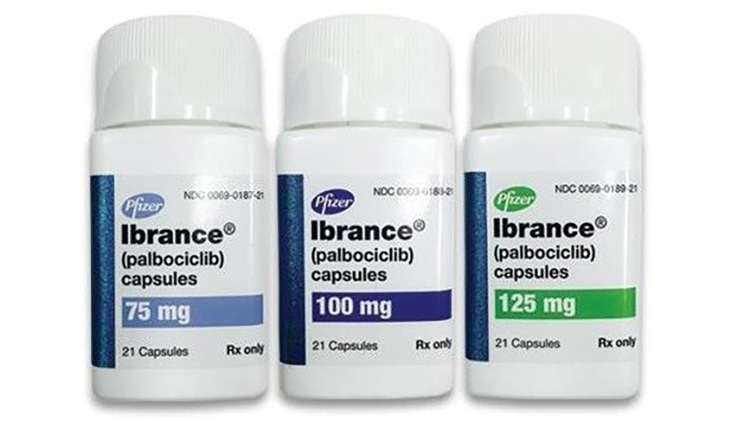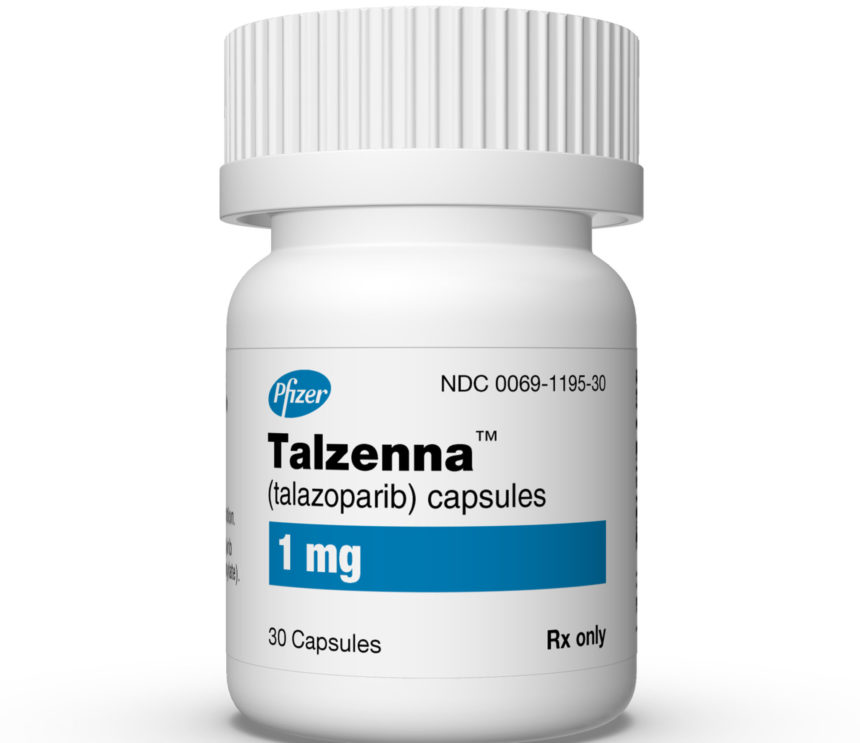Ibrance (palbociclib) vs Talzenna (talazoparib)
Ibrance (palbociclib) vs Talzenna (talazoparib)
Ibrance (palbociclib) is a CDK4/6 inhibitor used primarily in combination with hormonal therapies for the treatment of hormone receptor-positive, HER2-negative advanced or metastatic breast cancer. Talzenna (talazoparib) is a PARP inhibitor indicated for patients with deleterious or suspected deleterious germline BRCA-mutated, HER2-negative locally advanced or metastatic breast cancer. The choice between these medications would depend on the patient's specific breast cancer subtype, genetic mutation status, and overall treatment plan as determined by their healthcare provider.
Difference between Ibrance and Talzenna
| Metric | Ibrance (palbociclib) | Talzenna (talazoparib) |
|---|---|---|
| Generic name | Palbociclib | Talazoparib |
| Indications | HR-positive, HER2-negative advanced or metastatic breast cancer | Germline BRCA-mutated, HER2-negative locally advanced or metastatic breast cancer |
| Mechanism of action | CDK4/6 inhibitor | PARP inhibitor |
| Brand names | Ibrance | Talzenna |
| Administrative route | Oral | Oral |
| Side effects | Neutropenia, leukopenia, infections, fatigue | Anemia, nausea, fatigue, neutropenia, headache, vomiting |
| Contraindications | Hepatic impairment, concurrent use with strong CYP3A inhibitors | None known |
| Drug class | Antineoplastic agent | Antineoplastic agent |
| Manufacturer | Pfizer | Pfizer |
Efficacy
Efficacy of Ibrance (Palbociclib) in Breast Cancer
Ibrance (palbociclib) is a targeted therapy known as a cyclin-dependent kinase (CDK) 4/6 inhibitor, which is approved for the treatment of hormone receptor-positive (HR+), human epidermal growth factor receptor 2-negative (HER2-) advanced or metastatic breast cancer. It is typically used in combination with an aromatase inhibitor or fulvestrant. Clinical trials have demonstrated that palbociclib, when used in combination with letrozole, significantly improves progression-free survival compared to letrozole alone in postmenopausal women with estrogen receptor-positive (ER+) advanced breast cancer. The addition of palbociclib has been shown to delay disease progression and could potentially improve overall survival, although long-term survival benefits are still under investigation.
Efficacy of Talzenna (Talazoparib) in Breast Cancer
Talzenna (talazoparib) is a poly (ADP-ribose) polymerase (PARP) inhibitor indicated for the treatment of adults with deleterious or suspected deleterious germline BRCA-mutated, HER2-negative locally advanced or metastatic breast cancer. Patients selected for therapy with talazoparib should have a confirmed BRCA mutation identified through an FDA-approved test. In clinical studies, talazoparib has shown a significant improvement in progression-free survival compared to standard chemotherapy in patients with BRCA-mutated, HER2-negative advanced breast cancer. The efficacy of talazoparib is particularly notable in this subset of patients due to the mechanism of action that exploits the DNA repair deficiencies inherent in BRCA-mutated cells.
Comparative Efficacy in Breast Cancer Treatment
When comparing Ibrance and Talzenna, it is important to consider the specific patient populations for which each drug is indicated. Ibrance is broadly used for HR+, HER2- advanced or metastatic breast cancer in combination with hormonal therapies, whereas Talzenna is specifically for patients with a BRCA mutation. Both medications have shown significant efficacy in their respective indications, improving progression-free survival and offering a targeted approach to treating breast cancer. However, the choice between these treatments would depend on the molecular characteristics of the tumor, the presence of a BRCA mutation, and the patient's overall health status and treatment history.
Conclusion
In conclusion, both Ibrance (palbociclib) and Talzenna (talazoparib) represent important advances in the treatment of breast cancer, with each offering a targeted therapeutic strategy for specific subsets of breast cancer patients. The efficacy of these drugs in improving clinical outcomes underscores the importance of personalized medicine in oncology, where treatments can be tailored to the genetic makeup of the cancer and the individual characteristics of the patient. Ongoing research continues to refine the use of these agents and to explore their full potential in the management of breast cancer.
Regulatory Agency Approvals
Ibrance
-
European Medical Agency (EMA), European Union

-
Food and Drug Administration (FDA), USA

-
Health Canada

-
Therapeutic Goods Administration (TGA), Australia

-
Medsafe (NZ)

Talzenna
-
European Medical Agency (EMA), European Union

-
Food and Drug Administration (FDA), USA

-
Therapeutic Goods Administration (TGA), Australia

Access Ibrance or Talzenna today
If Ibrance or Talzenna are not approved or available in your country (e.g. due to supply issues), you can access them via Everyone.org.
How it works

Make an enquiry
Choose the medicine you want to buy, answer a couple of questions, and upload your prescription to speed things up. We’ll get back to you within 24 hours.


Make an enquiry
Choose the medicine you want to buy, answer a couple of questions, and upload your prescription to speed things up. We’ll get back to you within 24 hours.


Breeze through the paperwork
We'll guide you through the required documents for importing unapproved medicine, ensuring you have all the necessary information.


Get a personalized quote
We’ll prepare a quote for you, including medicine costs and any shipping, administrative, or import fees that may apply.


Receive your medicine
Accept the quote and we’ll handle the rest - sourcing and safely delivering your medicine.

Some text on this page has been automatically generated. Speak to your physician before you start a new treatment or medication.
Let's talk
If you have any questions, call us or send us a message through WhatsApp or email:
Contact us




